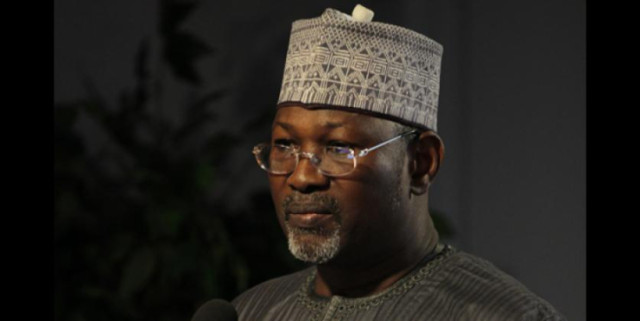Former Independent National Electoral Commission Chairman, Professor Attahiru Jega, has expressed concern over the mass exodus of talented young Nigerians from the country.
He said the 'Japa syndrome' trends as well as the current struggles in the nation symbolise a dangerous loss of hope.
He spoke at the launch of the Unveiling and Rebranding Nigeria Initiative in Abuja on Saturday.
He urged dedicated patriots to stand firm and restore the faith in the country's future.
According to Jega, “The country’s current struggles, including the nation’s global label as the poverty capital of the world and the increasing exodus of young talent, known as the “Japa” phenomenon, are worrisome.
“This trend symbolizes a dangerous loss of hope, one that dedicated patriots must counter by restoring faith in the country’s future.”
While noting that Nigeria’s post-independence era was a time when the country served as a beacon of hope across Africa, inspiring Black communities around the world, Jega commended the selfless leadership of the First Republic.
He added that the leaders then laid a solid foundation for nation-building.
The former INEC chairman urged Nigerians to reject claims that Nigeria is a failed state.
He said, “We must reject the narrative of a failed state and work to reform our systems, to bridge divisions, and to build a nation that serves all its citizens. “
Speaking, the Minister of Information and National Orientation, Mohammed Idris, said citizens deserve better than mere promises.
Represented by the Director-General of the National Orientation Agency, Lanre Isa-Onilu, the minister said the promises made to the citizens must be fulfilled.
He said, “To keep our commitments, we must ensure that our implementations reflect the promises made to our citizens. The issue of leadership is intertwined with the challenge of managing relationships.
“This is why constructive management is essential; it is what our country has promised to deliver to its citizens in exchange for their trust. We must recognize that our citizens deserve better than mere promises; they need tangible results from the projects we undertake.”
URNI Patron, Ambassador Hassan Tukur, emphasized that Nigeria’s progress hinges on leadership rooted in character and competence.
He reflected on a time when Nigerians formed strong connections across ethnic and religious lines, urging a revival of these values.
Tukur attributed the nation’s socio-economic challenges to a deficit in strong leadership and called on leaders to focus on job creation, resource mobilization, and national unity.




















